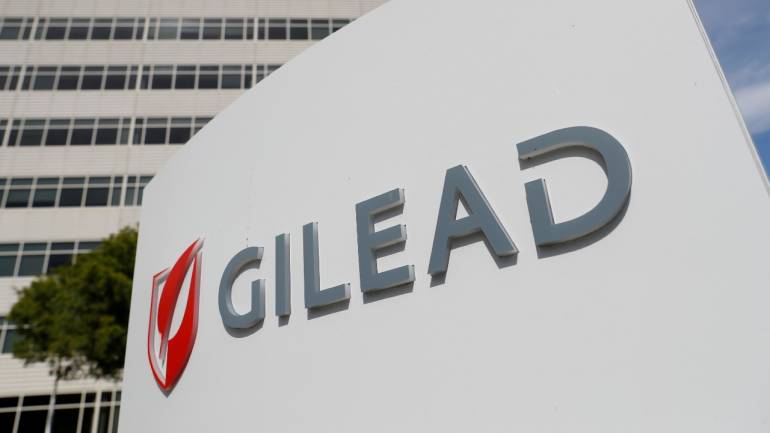Washington: A top United States infectious disease official has said Gilead Sciences Inc’s experimental antiviral drug ‘remdesivir’ is giving success. He said it will become the standard of care for COVID-19. Early clinical trial results Wednesday showed it helped coronavirus patients recover more quickly.
Significant results
Preliminary results from a US government trial show that patients given remdesivir recovered 31% faster than those given a placebo. The results have been hailed by Dr Anthony Fauci as ‘highly significant’.
“This is really quite important,” Fauci told reporters at the White House. It can be compared to the time in 1986. Then we were struggling for drugs for HIV and we had nothing. This (remdesivir) will be the standard of care,” he added.
The US Food and Drug Administration (FDA) said it has been in discussions with Gilead) about making remdesivir available to patients quickly. However, the agency declined to comment on any plans to grant the drug regulatory approval.
Donald Trump’s opinion
“I want them to go as quickly as they can,” President Donald Trump said. He was asked if he wanted the FDA to grant emergency use authorisation for remdesivir. “We want everything to be safe, but we would like to see very quick approvals. Especially with things which work in curing coronavirus patients.”
The closely watched drug, given by intravenous infusion to hospitalised patients, has proved quite effective. However, Fauci cautioned that the latest data still needs to be analyzed.
Banking on remdesivir
Interest in remdesivir has been high as there are no approved treatments or preventive vaccines for COVID-19. Doctors are desperate for anything that might alter the course of the disease. In severe cases of coronavirus lungs and other organs are affected leading to a patient’s death.
Doctors have been eager for results from the NIH study. This is because it is a large trial in which patients were randomised to treatment with the drug or a placebo. Participants or doctors did not know which group they were in – the golden rule for clinical trials.
Expanding global capacity
Gilead earlier this month had said it was prepared to donate to hospitals its existing supply of 1.5 million doses of remdesivir. The company said it said was enough for more than 140,000 patients. Regulatory approval of the drug would clear the way for commercial sales.
“We are working to build a global consortium of pharmaceutical and chemical manufacturers to. This will help expand global capacity and production,” Gilead chief executive Daniel O’Day said. He also informed Gilead is looking at ways to potentially bring the treatment to a broader patient population.
Quicker recovery time
The National Institute of Allergy and Infectious Diseases had an interesting observation to offer. It said partial results from its 1,063-patient trial show that COVID-19 patients given remdesivir recovered quicker. They recovered in 11 days, compared to 15 days for patients given a placebo.
The study also showed a trend toward better survival for remdesivir. Eight per cent of patients given the drug died compared with 11.6% in the placebo group. However, experts do not consider the figures to be very significant.
The trial’s lead researcher had earlier said that full results could come by mid-May. “The full dataset will provide more clarity on how remdesivir can best be used,” said Indian-origin Dr Aneesh Mehta. He is a researcher on the NIH trial from Emory University School of Medicine in Atlanta.
More results needed
Despite the excitement, Dr Lawrence K. Altman, global fellow at ‘The Wilson Centre’ in Washington, DC, was not ready to celebrate.
The new data ‘offers a glimmer of hope’ that remdesivir has an effect against COVID-19. However, more scientific analysis is needed ‘comparing them to other studies of the drug’ Altman said in a statement.
China terminated trials early
Results were also published by the ‘Lancet’ medical journal of a trial conducted in China. It concluded remdesivir failed to improve patients’ condition or reduce the pathogen’s presence in the bloodstream. Gilead said previously that those findings were inconclusive because the study was terminated early.
“The drug seems to have antiviral activity – how much is as yet unclear,” Dr. Daniel McQuillen, an infectious disease specialist said. “Seems likely that it might need use with another antiviral agent,” he added. Combination antiviral treatments have proven highly effective against other diseases.
This is how remdesivir works
Remdesivir had earlier failed as a treatment for Ebola. It is being tried against COVID-19 now without any proper vaccine against the disease. Remdesivir can disable the mechanism by which certain viruses make copies of themselves and potentially overwhelm their host’s immune system.
The company is also studying the drug in patients with less severe COVID-19, but those results are not expected until later next month.
Agencies
